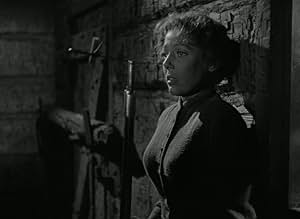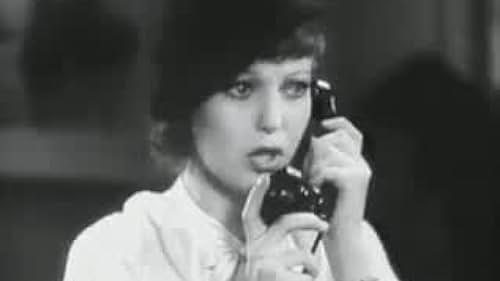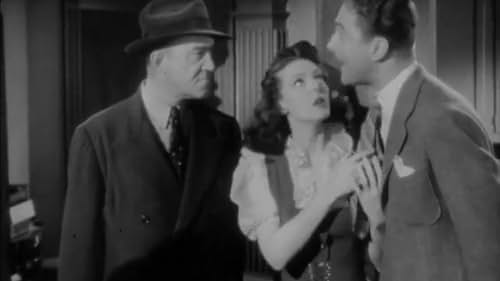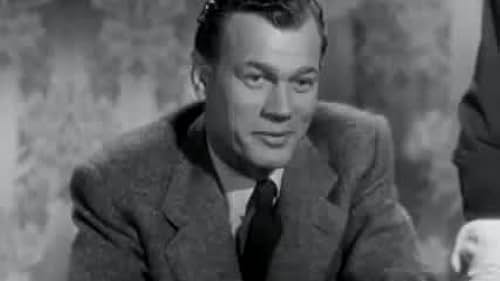Loretta Young(1913-2000)
- Actress
- Producer
- Soundtrack
Sweet, sweeter, sweetest. No combination of terms better describes the
screen persona of lovely Loretta Young. A&E's
Biography (1987) has stated that
Young "remains a symbol of beauty, serenity, and grace. But behind the
glamour and stardom is a woman of substance whose true beauty lies in
her dedication to her family, her faith, and her quest to live life
with a purpose."
Loretta Young was born Gretchen Young in Salt Lake City, Utah on January 6, 1913, to Gladys (Royal) and John Earle Young. Her parents separated when Loretta was three years old. Her mother moved Loretta and her two older sisters to Southern California, where Mrs. Young ran a boarding house. When Loretta was 10, her mother married one of her boarders, George Belzer. They had a daughter, Georgianna, two years later.
Loretta was appearing on screen as a child extra by the time she was four, joining her elder sisters, Polly Ann Young and Elizabeth Jane Young (later better known as Sally Blane), as child players. Mrs. Young's brother-in-law was an assistant director and got young Loretta a small role in the film The Only Way (1914). The role consisted of nothing more than a small, weeping child lying on an operating table. Later that year, she appeared in another small role, in The Primrose Ring (1917). The film starred Mae Murray, who was so taken with little Loretta that she offered to adopt her. Loretta lived with the Murrays for about a year and a half. In 1921, she had a brief scene in The Sheik (1921).
Loretta and her sisters attended parochial schools, after which they helped their mother run the boarding house. In 1927, Loretta returned to films in a small part in Naughty But Nice (1927). Even at the age of fourteen, she was an ambitious actress. Changing her name to Loretta Young, letting her blond hair revert to its natural brown and with her green eyes, satin complexion and exquisite face, she quickly graduated from ingenue to leading lady. Beginning with her role as Denise Laverne in The Magnificent Flirt (1928), she shaped any character she took on with total dedication. In 1928, she received second billing in The Head Man (1928) and continued to toil in many roles throughout the '20s and '30s, making anywhere from six to nine films a year. Her two sisters were also actresses but were not as successful as Loretta, whose natural beauty was her distinct advantage.
The 17-year-old Young made headlines in 1930 when she and Grant Withers, who was previously married and nine years her senior, eloped to Yuma, Arizona. They had both appeared in Warner Bros.' The Second Floor Mystery (1930). The marriage was annulled in 1931, the same year in which the pair would again co-star on screen in a film ironically titled Too Young to Marry (1931). By the mid-'30s, Loretta left First National Studios for rival Fox, where she had previously worked on a loan-out basis, and became one of the premier leading ladies of Hollywood.
In 1935, she made The Call of the Wild (1935) with Clark Gable and it was thought they had an affair where Loretta got pregnant thereafter. Because of the strict morality clauses in their contracts - and the fact that Clark Gable was married - they could not tell anybody except Loretta's mother. Loretta and her mother left for Europe after filming on The Crusades finished. They returned in August 1935 to the United States, at which time Gladys Belzer announced Loretta's 'illness' to the press. Filming on Loretta's next film, Ramona, was also cancelled. During this time, Loretta was living in a small house in Venice, California, her mother rented. On November 6, 1935, Loretta delivered a healthy baby girl whom she named Judith. It wasn't until the 1990s when she was watching Larry King Live where she first heard the word 'date rape' and upon finding out exactly what it was, professed to her friend and biographer Edward Funk and her daughter-in-law Linda Lewis, that she had gone through the same with Clark Gable. "That's what happened between me and Clark."
In 1938, Loretta starred as Sally Goodwin in Kentucky (1938), an outstanding success. Her co-star Walter Brennan won the Academy Award for Best Supporting Actor for his role as Peter Goodwin.
In 1940, Loretta married businessman Tom Lewis, and from then on her child was called Judy Lewis, although Tom Lewis never adopted her. Judy was brought up thinking that both parents had adopted her and did not know, until years later, that she was actually the biological daughter of Loretta and Clark Gable. Four years after her marriage to Tom Lewis, Loretta had a son, Christopher Lewis, and later another son, Peter Charles.
In the 1940s, Loretta was still one of the most beautiful ladies in Hollywood. She reached the pinnacle of her career when she won the Academy Award for Best Actress in The Farmer's Daughter (1947), the tale of a farm girl who rises through the ranks and becomes a congresswoman. It was a smash and today is her best remembered film. The same year, she starred in the delightful fantasy The Bishop's Wife (1947) with David Niven and Cary Grant. It was another box office success and continues to be a TV staple during the holiday season. In 1949, Loretta starred in the well-received film, Mother Is a Freshman (1949) with Van Johnson and Rudy Vallee and Come to the Stable (1949). The latter garnered Loretta her second Oscar nomination, but she lost to Olivia de Havilland in The Heiress (1949). In 1953, Loretta made It Happens Every Thursday (1953), which was to be her final big screen role.
She retired from films in 1953 and began a second, equally successful career as hostess of Letter to Loretta (1953), a half-hour television drama anthology series which ran on NBC from September 1953 to September 1961. In addition to hosting the series, she frequently starred in episodes. Although she is most remembered for her stunning gowns and swirling entrances, over the broadcast's eight-year run she also showed again that she could act. She won Emmy awards for best actress in a dramatic series in 1954, 1956 and 1958.
After the show ended, she took some time off before returning in 1962 with The New Loretta Young Show (1962), which was not so successful, lasting only one season. For the next 24 years, Loretta did not appear in any entertainment medium. Her final performance was in a made for TV film Lady in a Corner (1989).
By 1960, Loretta was a grandmother. Her daughter Judy Lewis had married about three years before and had a daughter in 1959, whom they named Maria. Loretta and Tom Lewis divorced in the early 1960s. Loretta enjoyed retirement, sleeping late, visiting her son Chris and daughter-in-law Linda, and traveling. She and her friend Josephine Alicia Saenz, ex-wife of John Wayne, traveled to India and saw the Taj Mahal. In 1990, she became a great-grandmother when granddaughter Maria, daughter of Judy Lewis, gave birth to a boy.
Loretta lived a quiet retirement in Palm Springs, California until her death on August 12, 2000 from ovarian cancer at the home of her sister Georgiana and Georgiana's husband, Ricardo Montalban.
Loretta Young was born Gretchen Young in Salt Lake City, Utah on January 6, 1913, to Gladys (Royal) and John Earle Young. Her parents separated when Loretta was three years old. Her mother moved Loretta and her two older sisters to Southern California, where Mrs. Young ran a boarding house. When Loretta was 10, her mother married one of her boarders, George Belzer. They had a daughter, Georgianna, two years later.
Loretta was appearing on screen as a child extra by the time she was four, joining her elder sisters, Polly Ann Young and Elizabeth Jane Young (later better known as Sally Blane), as child players. Mrs. Young's brother-in-law was an assistant director and got young Loretta a small role in the film The Only Way (1914). The role consisted of nothing more than a small, weeping child lying on an operating table. Later that year, she appeared in another small role, in The Primrose Ring (1917). The film starred Mae Murray, who was so taken with little Loretta that she offered to adopt her. Loretta lived with the Murrays for about a year and a half. In 1921, she had a brief scene in The Sheik (1921).
Loretta and her sisters attended parochial schools, after which they helped their mother run the boarding house. In 1927, Loretta returned to films in a small part in Naughty But Nice (1927). Even at the age of fourteen, she was an ambitious actress. Changing her name to Loretta Young, letting her blond hair revert to its natural brown and with her green eyes, satin complexion and exquisite face, she quickly graduated from ingenue to leading lady. Beginning with her role as Denise Laverne in The Magnificent Flirt (1928), she shaped any character she took on with total dedication. In 1928, she received second billing in The Head Man (1928) and continued to toil in many roles throughout the '20s and '30s, making anywhere from six to nine films a year. Her two sisters were also actresses but were not as successful as Loretta, whose natural beauty was her distinct advantage.
The 17-year-old Young made headlines in 1930 when she and Grant Withers, who was previously married and nine years her senior, eloped to Yuma, Arizona. They had both appeared in Warner Bros.' The Second Floor Mystery (1930). The marriage was annulled in 1931, the same year in which the pair would again co-star on screen in a film ironically titled Too Young to Marry (1931). By the mid-'30s, Loretta left First National Studios for rival Fox, where she had previously worked on a loan-out basis, and became one of the premier leading ladies of Hollywood.
In 1935, she made The Call of the Wild (1935) with Clark Gable and it was thought they had an affair where Loretta got pregnant thereafter. Because of the strict morality clauses in their contracts - and the fact that Clark Gable was married - they could not tell anybody except Loretta's mother. Loretta and her mother left for Europe after filming on The Crusades finished. They returned in August 1935 to the United States, at which time Gladys Belzer announced Loretta's 'illness' to the press. Filming on Loretta's next film, Ramona, was also cancelled. During this time, Loretta was living in a small house in Venice, California, her mother rented. On November 6, 1935, Loretta delivered a healthy baby girl whom she named Judith. It wasn't until the 1990s when she was watching Larry King Live where she first heard the word 'date rape' and upon finding out exactly what it was, professed to her friend and biographer Edward Funk and her daughter-in-law Linda Lewis, that she had gone through the same with Clark Gable. "That's what happened between me and Clark."
In 1938, Loretta starred as Sally Goodwin in Kentucky (1938), an outstanding success. Her co-star Walter Brennan won the Academy Award for Best Supporting Actor for his role as Peter Goodwin.
In 1940, Loretta married businessman Tom Lewis, and from then on her child was called Judy Lewis, although Tom Lewis never adopted her. Judy was brought up thinking that both parents had adopted her and did not know, until years later, that she was actually the biological daughter of Loretta and Clark Gable. Four years after her marriage to Tom Lewis, Loretta had a son, Christopher Lewis, and later another son, Peter Charles.
In the 1940s, Loretta was still one of the most beautiful ladies in Hollywood. She reached the pinnacle of her career when she won the Academy Award for Best Actress in The Farmer's Daughter (1947), the tale of a farm girl who rises through the ranks and becomes a congresswoman. It was a smash and today is her best remembered film. The same year, she starred in the delightful fantasy The Bishop's Wife (1947) with David Niven and Cary Grant. It was another box office success and continues to be a TV staple during the holiday season. In 1949, Loretta starred in the well-received film, Mother Is a Freshman (1949) with Van Johnson and Rudy Vallee and Come to the Stable (1949). The latter garnered Loretta her second Oscar nomination, but she lost to Olivia de Havilland in The Heiress (1949). In 1953, Loretta made It Happens Every Thursday (1953), which was to be her final big screen role.
She retired from films in 1953 and began a second, equally successful career as hostess of Letter to Loretta (1953), a half-hour television drama anthology series which ran on NBC from September 1953 to September 1961. In addition to hosting the series, she frequently starred in episodes. Although she is most remembered for her stunning gowns and swirling entrances, over the broadcast's eight-year run she also showed again that she could act. She won Emmy awards for best actress in a dramatic series in 1954, 1956 and 1958.
After the show ended, she took some time off before returning in 1962 with The New Loretta Young Show (1962), which was not so successful, lasting only one season. For the next 24 years, Loretta did not appear in any entertainment medium. Her final performance was in a made for TV film Lady in a Corner (1989).
By 1960, Loretta was a grandmother. Her daughter Judy Lewis had married about three years before and had a daughter in 1959, whom they named Maria. Loretta and Tom Lewis divorced in the early 1960s. Loretta enjoyed retirement, sleeping late, visiting her son Chris and daughter-in-law Linda, and traveling. She and her friend Josephine Alicia Saenz, ex-wife of John Wayne, traveled to India and saw the Taj Mahal. In 1990, she became a great-grandmother when granddaughter Maria, daughter of Judy Lewis, gave birth to a boy.
Loretta lived a quiet retirement in Palm Springs, California until her death on August 12, 2000 from ovarian cancer at the home of her sister Georgiana and Georgiana's husband, Ricardo Montalban.






































